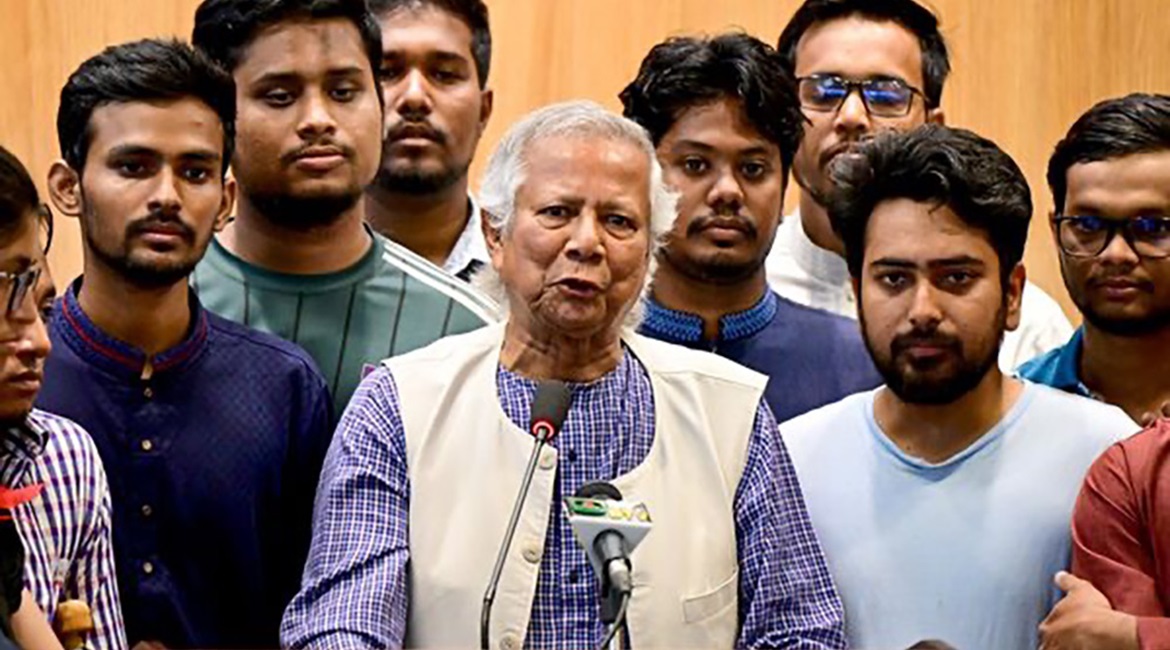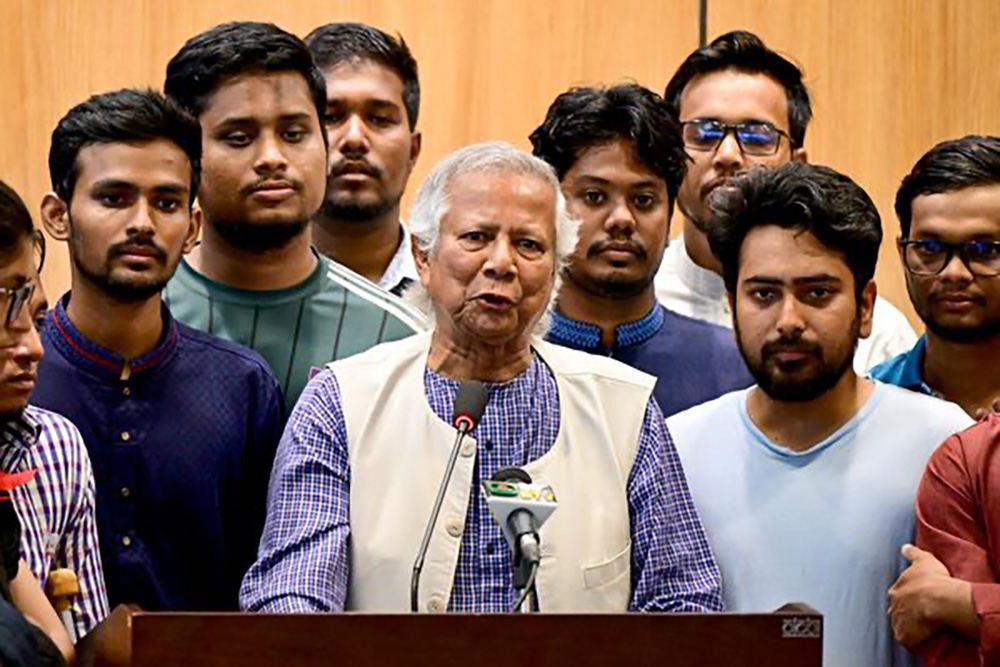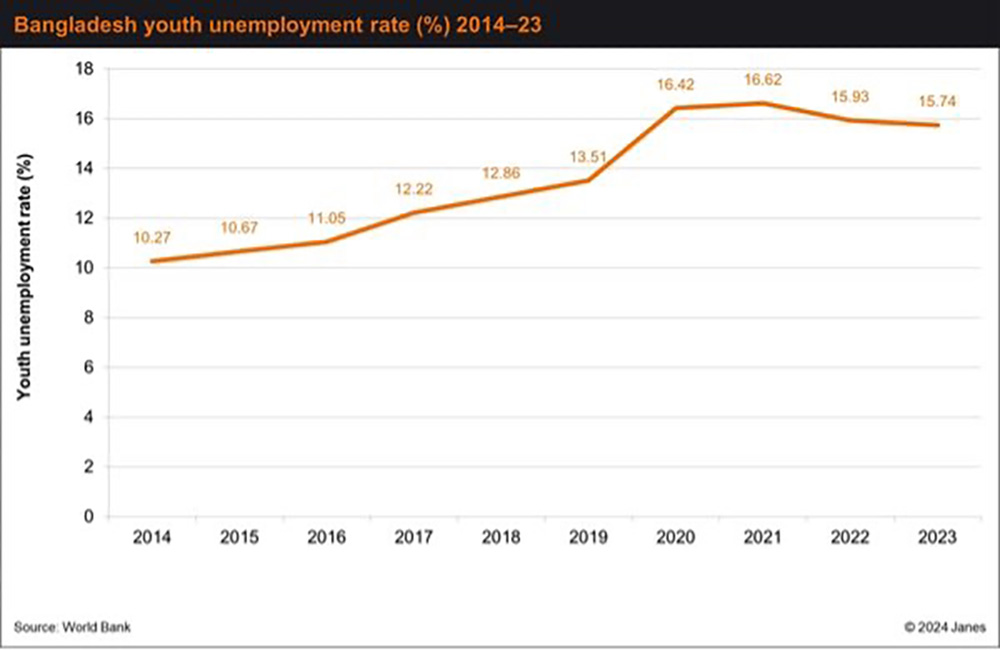
Date Posted: 30-Aug-2024
Author: Shivani Gayakwad, Bangalore Sarbhanu Nath, Bangalore Urmila Narzary, Bangalore
This report outlines Janes assessments relating to the ongoing political instability in Bangladesh. The report focuses on the risks of transition from the interim government to a democratically elected one and the impact on overall stability in Bangladesh with implications for the region in the coming six to 12 months.
Key points
- Intelligence requirement: This Insight report assesses the intelligence requirement – what factors affect the likelihood of a peaceful transfer of power from the interim government to a democratically elected one, and what are the regional security implications of political instability in the country
- Significance: Former Bangladesh Prime Minister Sheikh Hasina's resignation and departure from the country in August resulted in a power vacuum, which negatively impacted the political, economic, and social stability of the country, and there will likely be a heightened risk of instability until elections take place. The transition from the interim government to a democratically elected one will also impact the overall stability, which will have implications for the region in the coming six to 12 months. Hasina's departure has particularly impacted India, and bilateral ties are likely to be strained as a result of illegal migration, slow cross-border trade, and a delay in planned projects
- Assessment and outlook: There is a roughly even chance that the interim government, led by Muhammad Yunus, will hold elections by 4 November. A delayed election is likely to lead to a moderate to high risk of social and political instability. Political parties would very likely withdraw their support to the interim government in response to a significant delay in holding elections, presenting a moderate to high risk of protests and violence. The volume of cross-border activity between India and Bangladesh is likely to decrease over the next six months as India tightens security at the border with the pending elections and the formation of a new government
Intelligence requirement
What factors affect the likelihood of a peaceful transfer of power from the interim government to a democratically elected one in Bangladesh, and what are the regional security implications of political instability in the country?
- What are the historical and economic factors that led to the resignation of former Prime Minister Sheikh Hasina on 5 August ?
- What factors and associated risks are most likely to affect the process of political transition leading up to 4 November, the constitutionally mandated deadline for conducting national elections?
- What is the risk of the armed forces seizing power over the next three months?
- What are the implications of the country's instability on bilateral relations with major players in the Asia-Pacific region – especially India and China?
Significance
Overview & historical context
The High Court Division of the Supreme Court of Bangladesh ordered the reinstatement of a 30% quota system on 5 June. Under this system, 30% of civil service posts are reserved for the descendants of freedom fighters from the 1971 Bangladesh Liberation War. This led to large-scale protests from 5 June, which became increasingly violent from 11 July after an escalation of violent responses by the police and the Bangladesh Chhatra League (BSL) – the student wing of Hasina's Awami League (AL) political party. The continued protests led to Hasina's resignation on 5 August.
On 6 August President Mohammed Shahabuddin dissolved the parliament and announced the formation of an interim government. The Bangladeshi constitution considers non-caretaker interim governments as extra-constitutional after the interim governance system was abolished by the AL government in 2011. However, on 9 August, the Appellate Division of the Supreme Court of Bangladesh allowed the formation of the interim government “in the urgent need to run the state affairs to fill in the constitutional vacuum in the state”.
The army took operational control of the government until economist Muhammad Yunus was sworn in as the chief adviser of the interim government on 8 August. The interim government initially comprised a 16-member advisory council, which functions in effect as a prime ministerial cabinet. The interim government on 9 August announced the allocation of portfolios for the 16 members, which included members of civil society and former bureaucrats. As of 30 August the interim government consisted of 21 advisers, with four new advisers appointed on 16 August. The council does not include any current members of the opposition parties such as the Bangladesh Nationalist Party (BNP) and the Jamaat-e-Islami (JeI). It notably includes two members of the Students Against Discrimination (SAD), the lead organiser of the student protests.
 Nobel Prize laureate Muhammad Yunus (centre) speaks at a press conference as Bangladesh's quota reform movement leader and Students Against Discrimination group's chief Nahid Islam (second from right) watches, at the Hazrat Shahjalal International Airport in Dhaka on 8 August 2024. (Munir Uz Zaman/AFP via Getty Images)
Nobel Prize laureate Muhammad Yunus (centre) speaks at a press conference as Bangladesh's quota reform movement leader and Students Against Discrimination group's chief Nahid Islam (second from right) watches, at the Hazrat Shahjalal International Airport in Dhaka on 8 August 2024. (Munir Uz Zaman/AFP via Getty Images)
The 2024 quota reform protests culminated in a wider anti-government protest due to growing political resentment against the Hasina-led government. Anti-government grievances were very likely linked to issues such as a high rate of youth unemployment, high levels of perceived corruption, and the administration's crackdown on opposition parties and movements. Bangladesh's average youth unemployment rate was 15.7% in 2023, according to World Bank data – an increase from 8.9% in 2008 (when Hasina became the prime minister). World Bank data highlights that consumer price inflation was 9.9% in 2023, an increase from 5.5% in 2021. Protesters also likely perceived the quota system to benefit those close to Hasina and her administration while economic challenges affected the wider population.

Bangladesh youth unemployment rate (%) 2014–23. (Janes)






